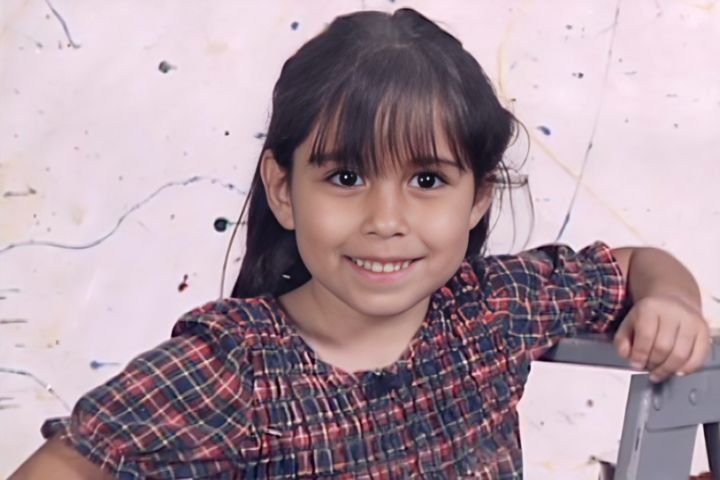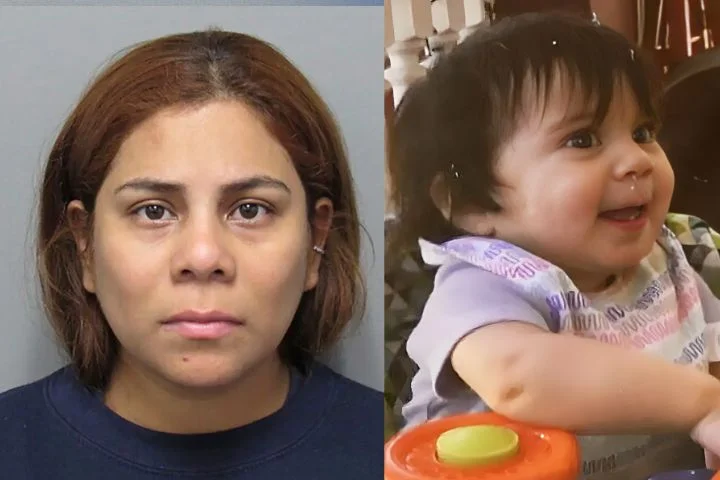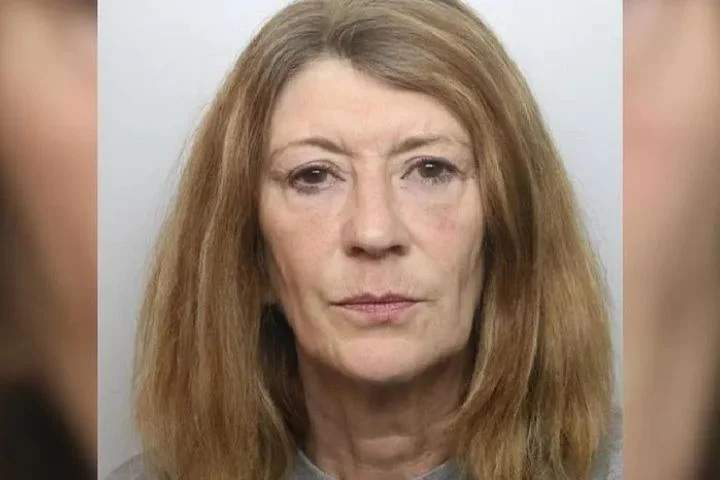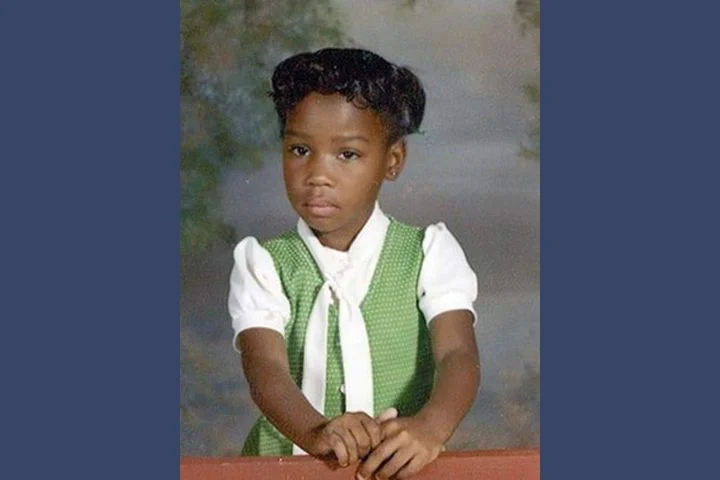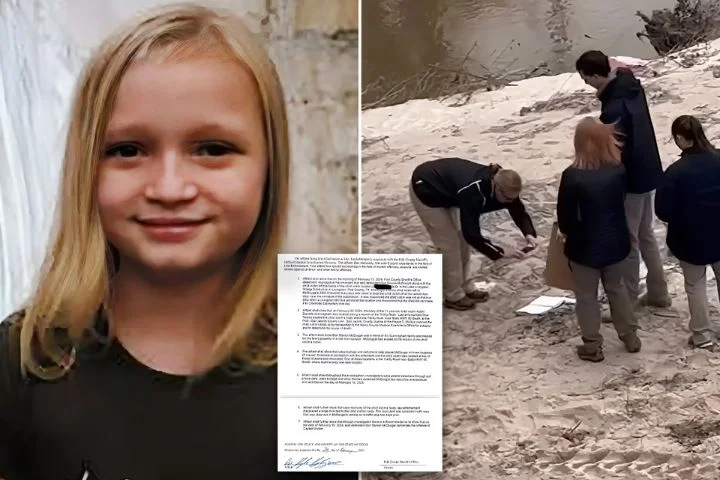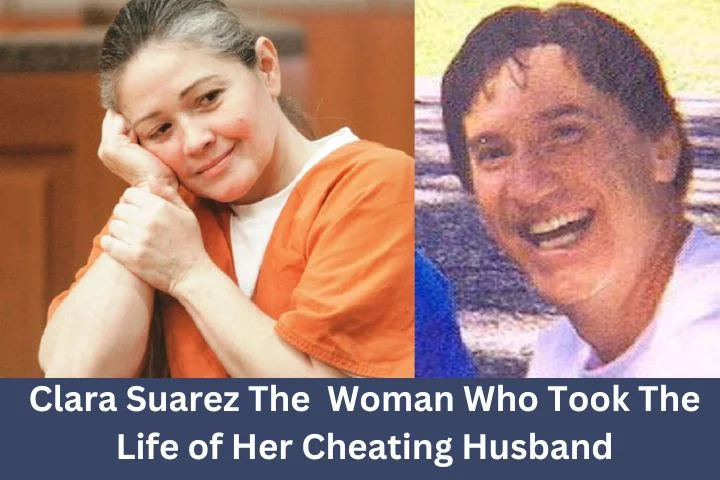In 1995, 6-year-old Rosie Tapia was kidn*pped from her bedroom in Salt Lake City. The day before, a man brought Rosie back to her apartment, telling her sister that Rosie had been injured at the playground. Rosie herself stated she hadn’t been hurt and was puzzled as to how the man knew her name.
During the early hours of the morning on August 13, 1995, Lewine Tapia and her husband returned to their ground floor apartment at the Hartland Apartment complex in Salt Lake City, Utah after a night out together. Before bed, Lewine checked on her three youngest children, her 4-year-old twins, and 6-year-old Rosie. Their older sister, 18-year-old Emilia, was babysitting that night.
The children shared a room, and at 2:00 a.m., all three were fast asleep. Around 5:45 a.m., Lewine checked on them again after waking up. She noticed the children’s bedroom door was closed, which was unusual since she left it open earlier. Upon entering, she discovered Rosie was missing, and the room showed signs of disturbance: the window was open, the screen removed, curtains parted, and blinds damaged.
Lewine woke everyone and alerted Salt Lake City Police and extended family members. A search for Rosie began immediately. Conflicting reports exist about whether anyone heard or saw anything suspicious during Rosie’s ab*uction. Earlier reports suggested Rosie’s 4-year-old brother saw a “bearded man” in his room telling him to “go back to sleep,” but more recent reports indicate no one heard or saw anything.
Initially, investigators suspected Rosie had wandered from her room voluntarily, though Lewine contended this behavior was uncharacteristic of her. Through extensive questioning of Rosie’s immediate family, investigators discovered that the evening before Rosie went missing, Emilia escorted her to the playground at Hartland Apartments, where children from the building congregated to play. After walking Rosie to the playground, Emilia returned home while Rosie played. Between 7 and 8 PM that evening, there was a knock at the door. An unfamiliar man stood there, holding Rosie in his arms. He claimed Rosie was still at the bottom of the slide when another child accidentally kicked her. According to Emilia, the man seemed nervous, stuttered, and spoke softly. Emilia thanked him and took Rosie, assuring she would tend to any potential injury. However, what Rosie said after Emilia closed the door alarmed her. Rosie revealed she had never been injured on the playground and was surprised the stranger knew her name.
At 10 am, shortly after Rosie vanished, a jogger with his dog found a small child’s body in the Jordan River Canal, around 2 miles from the Tapia home. It was Rosie, still clothed with no apparent signs of struggle. Initially, investigators suggested Rosie may have wandered off and drowned accidentally. The Tapia family criticized the Salt Lake City Police for dismissing foul play prematurely. Emilia stated, “Rosie wouldn’t just leave late at night and throw herself in the river.” Lewine agreed, saying, “Rosie wouldn’t climb out the window or go outside without telling us.” Investigators countered that they hadn’t dismissed foul play, but were exploring all possibilities, including Rosie wandering off.
It wasn’t until the following Monday that detectives officially classified Rosie’s case as a hom*cide, following the release of the autopsy report revealing she had suffered trauma indicative of se*ual as*ault. Investigators interviewed the Tapia family, their relatives, and Hartland residents, but leads were scarce. Emilia’s description of a stranger who had carried Rosie to her apartment the night before was the main lead, with witnesses reporting seeing a man matching her description observing children play on the playground. However, there was no indication he was supervising a child of his own.
By 1996, with no substantial leads, investigators realized the case would likely go cold unless a witness or the perpetrator came forward. Detective Jim Prior lamented, “We’ve got nothing at all. We’re at a 100% standstill.” Efforts to bring attention to Rosie’s case nationally were made, but were unsuccessful. Shows like America’s Most Wanted and Unsolved Mysteries were approached, but declined to cover the case citing a “lack of facts.”
In recent years, Rosie’s case has received increased media attention. In 2010, investigators released a composite sketch of a man wearing sunglasses and a ball cap. This individual is believed to be the person who informed Emilia about the incident on the playground the evening before Rosie’s disappearance. According to Jason Jensen, the Tapia family’s private investigator, it’s conceivable that this man brought Rosie home to ascertain her address, intending to return for her later that night.
In 2017, the Tapia family announced their collaboration with the Utah Cold Case Coalition. Comprised of attorneys, private investigators, public relations professionals, and other entities, the coalition is providing their expertise pro bono. Karra Porter, the Tapia’s attorney, publicly disclosed that they possess information about a potential suspect and one or two other individuals who may have witnessed something relevant. Porter stated that the family had met with the Salt Lake City Police Department a month prior, and detectives acknowledged that the new information could lead to “legitimate leads.”
The potential suspect and persons of interest were not publicly identified out of respect for the ongoing investigation. Porter urged anyone who resided, worked, or visited the Hartland Apartments in 1995 to come forward, emphasizing, “We have something to compare that information to now. That’s why it’s critical. Every little bit of information that seems unimportant is now critical.”
In 2019, Rosie’s case was featured on an episode of “On the Case” by the Investigation Discovery Network. Although Lewine appreciated seeing her daughter’s story reach beyond Utah’s borders, she was horrified by new details regarding Rosie’s m*rder. For example, Lewine learned for the first time that Rosie’s k*ller had submerged her underwater, causing her to drown. Additionally, she discovered that DNA was found underneath Rosie’s fingernails. Lewine expressed, “I didn’t know that they had DNA from her fingernails. I asked them a long time ago if they had DNA from her fingernails, and they told me they didn’t have any.”
The 42-minute episode also disclosed that police had submitted the DNA to a laboratory specializing in genetic testing. Jensen remarked, “If they can solve the golden state k*ller m*rders, clearly we can solve Rosie’s m*rder, and I feel pretty confident about that. We felt relieved that there is a lot more happening behind the scenes than what they’ve alluded to.”
A police department spokesman stated that he couldn’t explain why Lewine had not been provided with details of the investigation that were later revealed on Investigation Discovery. The reason remains unclear to this day.
Despite the strained relationship between the Tapia family and the Salt Lake City Police Department, it is reported to have improved over the years. The family now meets with the department every few months to discuss the case and any new leads. According to investigators, the case remains actively pursued, with tips coming in relatively frequently for a nearly 29-year-old case.
In the spring of 2019, the Utah Cold Case Coalition released a sketch of a man based on the recollections of a fellow resident of the Hartland Apartments. The witness reported seeing a teenager in the early hours of the morning coming from the direction of the canal, with wet pants. The teenager was described as Hispanic, aged between 16 or 17, with a slight build, narrow face, and high cheekbones, wearing denim jeans, a white shirt, and a medium-length gold chain. Salt Lake City Police granted permission for the Coalition to release the new sketch.
A recent article has revealed that the man in the photo selected by the witness was actually acquainted with Emilia. Before Emilia moved out, the children’s bedroom used to be hers, and she used to sneak in her boyfriend, Danny Woodland, through the same window Rosie had been ab*ucted from. Woodland disclosed that one of his friends, who remains unnamed, would drive him to the Tapia residence. While Woodland never witnessed his friend climbing through that window, he was aware of it after seeing Woodland himself do so for his late-night rendezvous with Emilia. However, there were occasions when Woodland’s friend entered the Tapia residence through the front door when Emilia’s parents weren’t home.
Woodland stated that his friend denied any involvement in Rosie’s m*rder. According to Woodland, Salt Lake police had contacted his friend earlier that year. Salt Lake police have not provided any comments on the specifics of this potential lead.
A second lineup was conducted with Emilia, who examined a set of photos and selected one she believes resembles the man who was carrying Rosie the day before she was a*ducted. While the identity of the man she chose will not be disclosed publicly, Jensen revealed that this individual was frequently seen at the apartment complex. Witnesses Jensen spoke to asserted that the man in the photo “disappeared” and never returned after Rosie’s m*rder.
There are two potential persons of interest derived from two different composites. Jensen requested Salt Lake City Police to investigate these individuals and was assured that they would. However, it’s uncertain whether Salt Lake police followed through on this request. Jensen emphasized that all detectives need to do is compare the DNA of these individuals with what was found at the crime scene.
Despite the recent efforts of the Utah Cold Case Coalition, no arrests have been made. Nonetheless, the Coalition remains optimistic that they are getting closer to solving the case with each passing day. Lewine, who faced a fall in 2019 and now struggles with mobility, hopes to live to see the day Rosie’s killer is apprehended.
In August 2022, on the 27th anniversary of Rosie’s d*ath, the Utah Cold Case Coalition announced an increase in the reward for information leading to the arrest and conviction of her killer from $35,000 to $100,000, in hopes that someone with information about the case will come forward. Police and the Tapia family continue to seek justice for Rosie and are asking for anyone with information about the case to come forward.
As of 2024, Rosie Tapia’s m*der remains unresolved.
